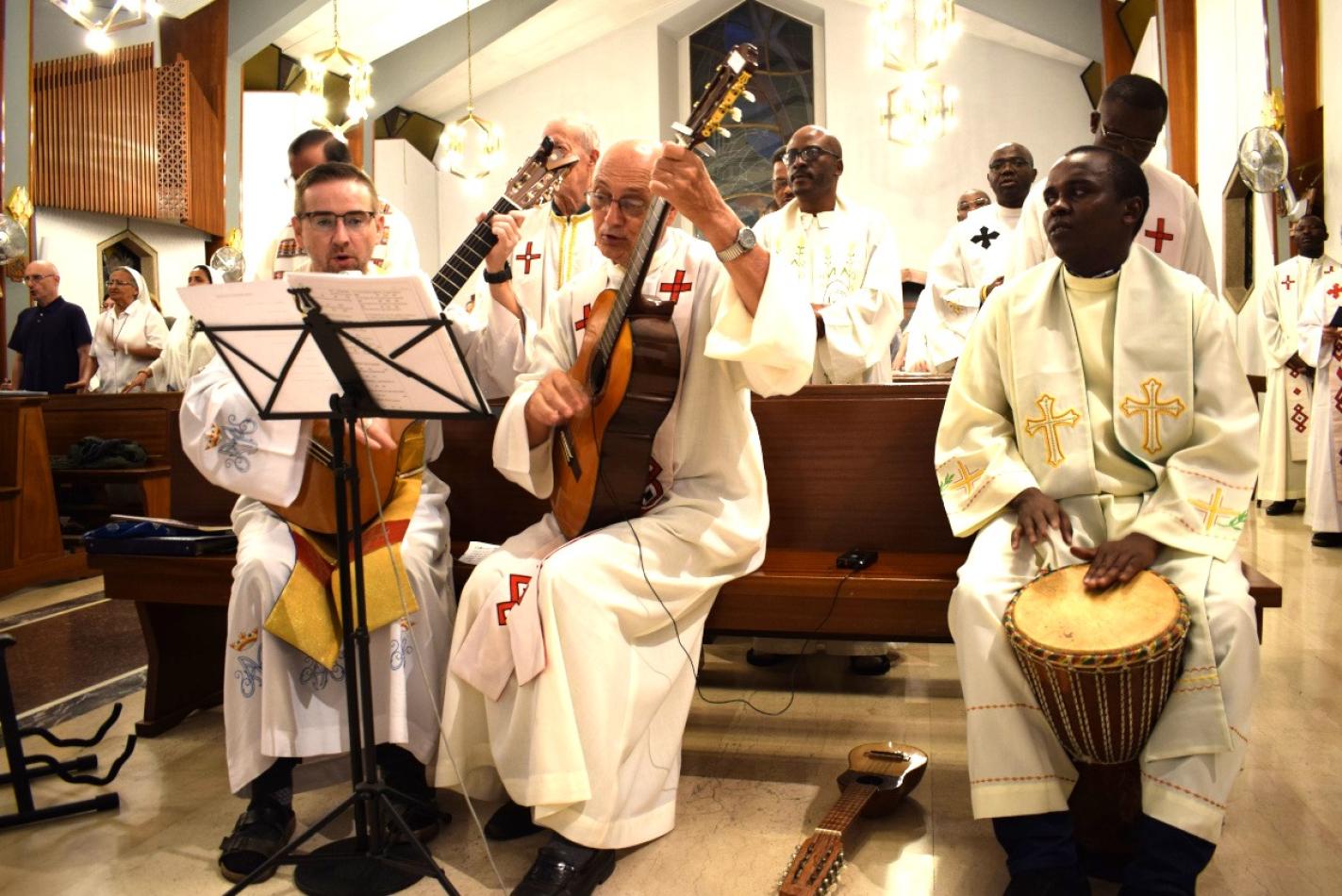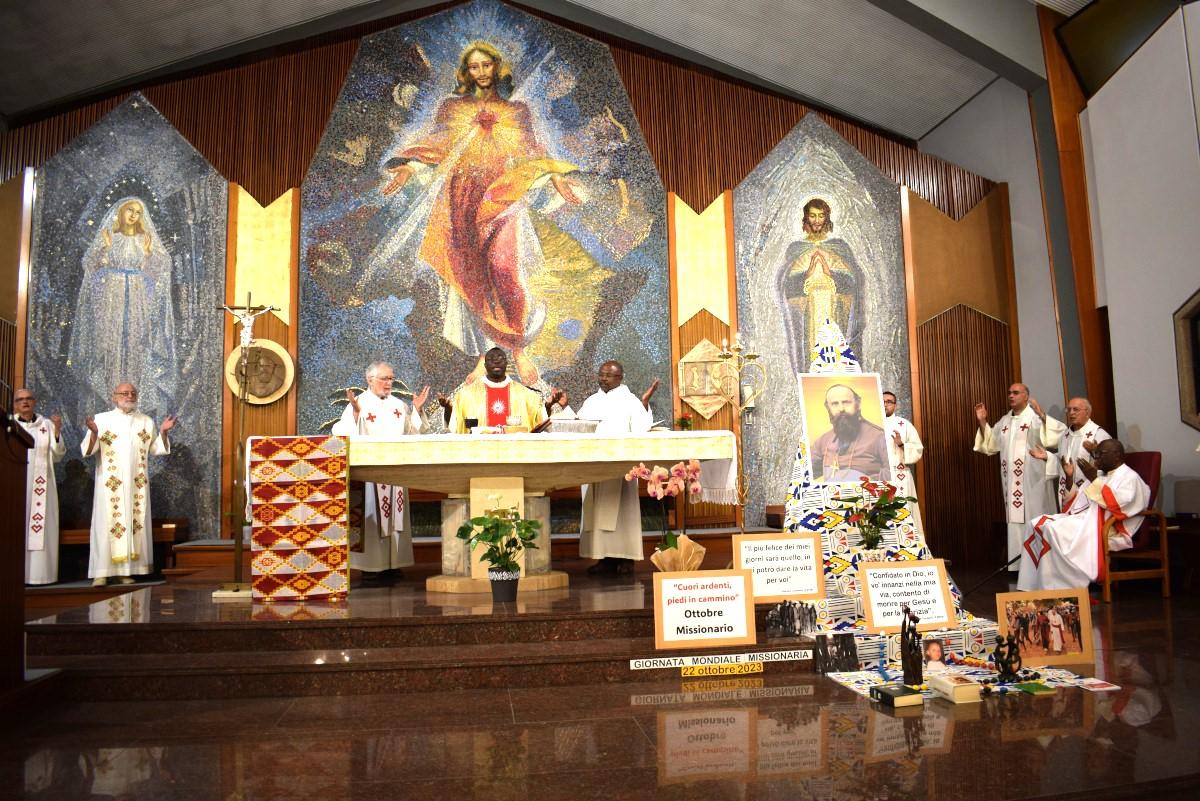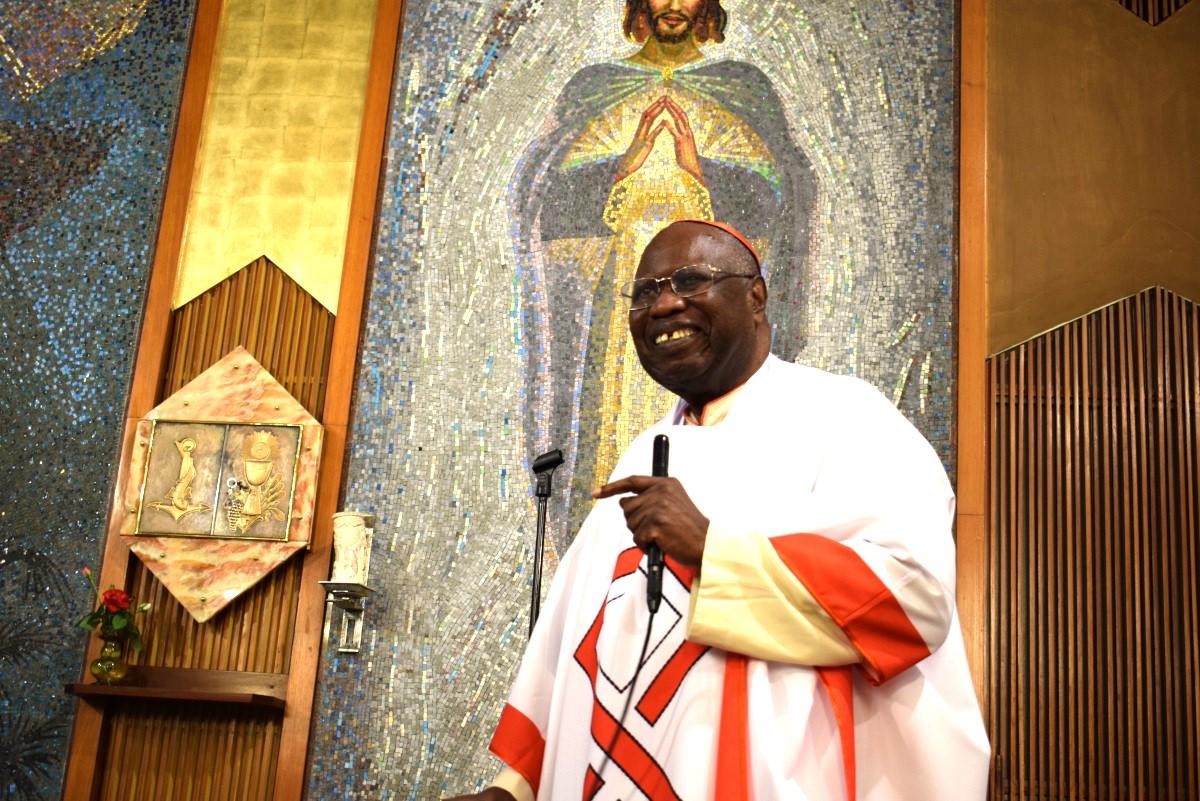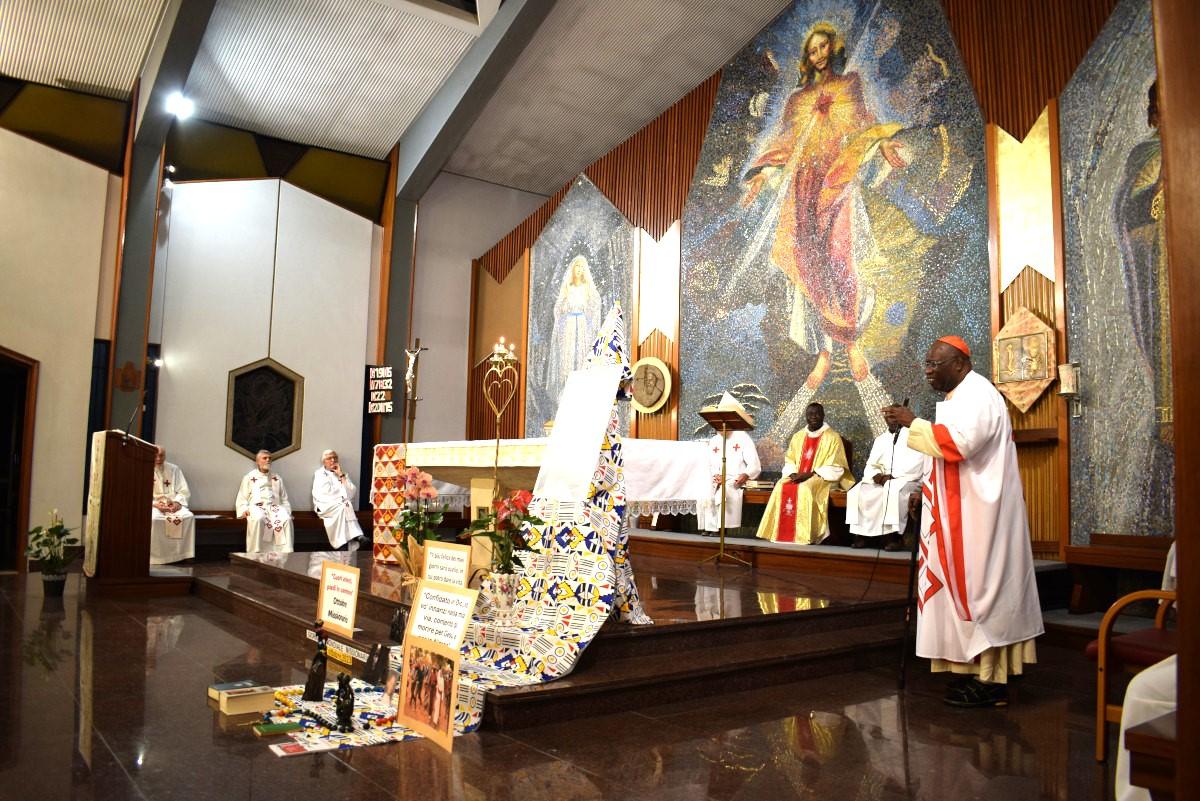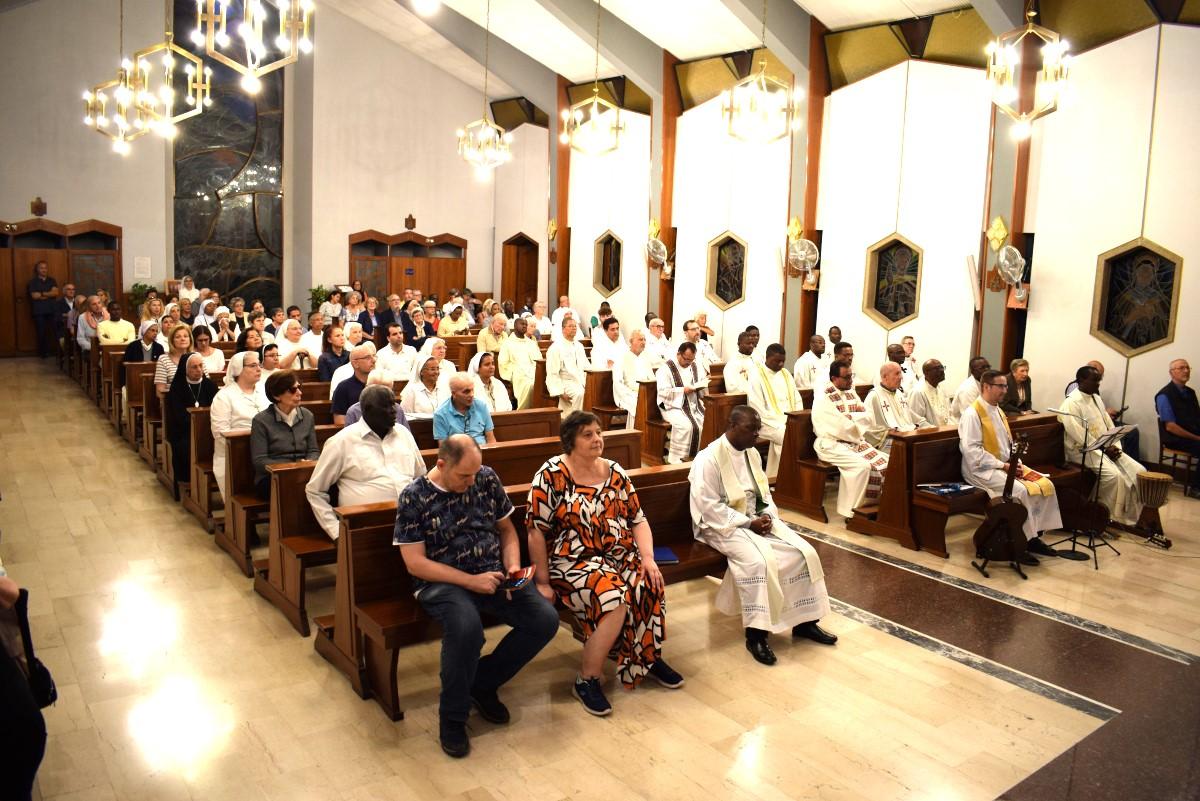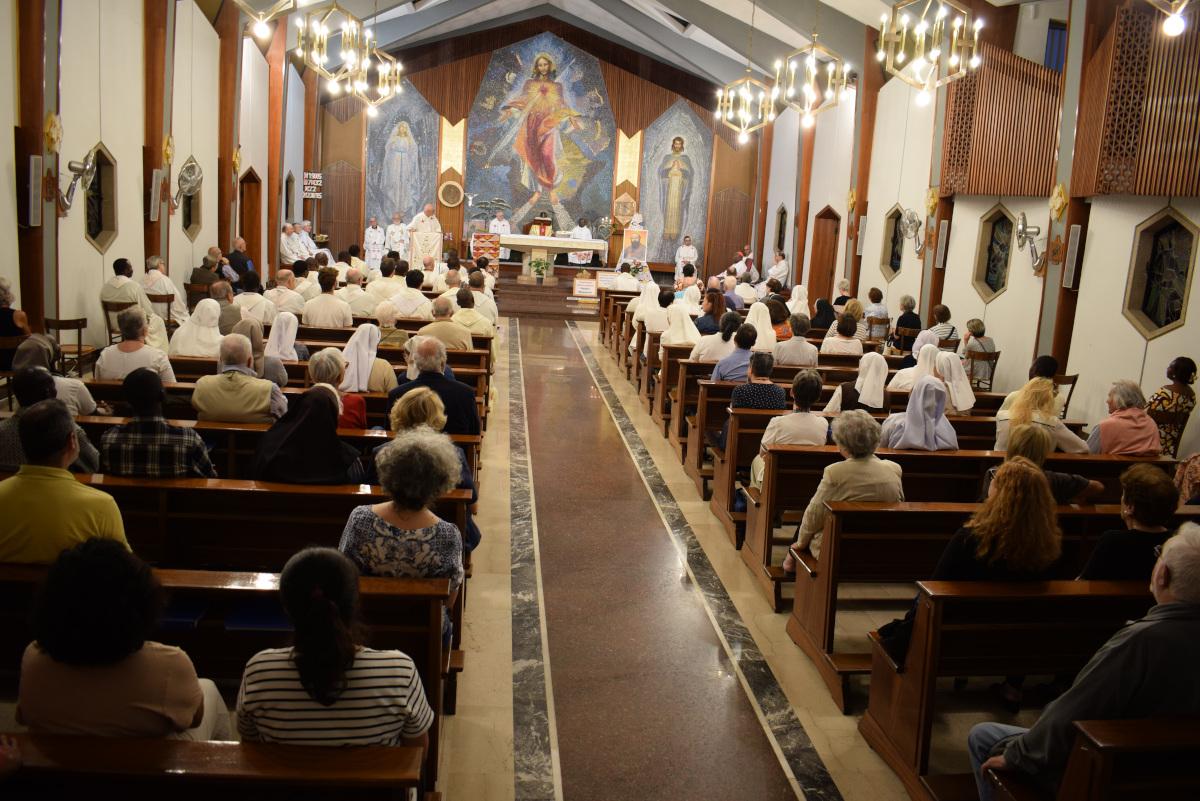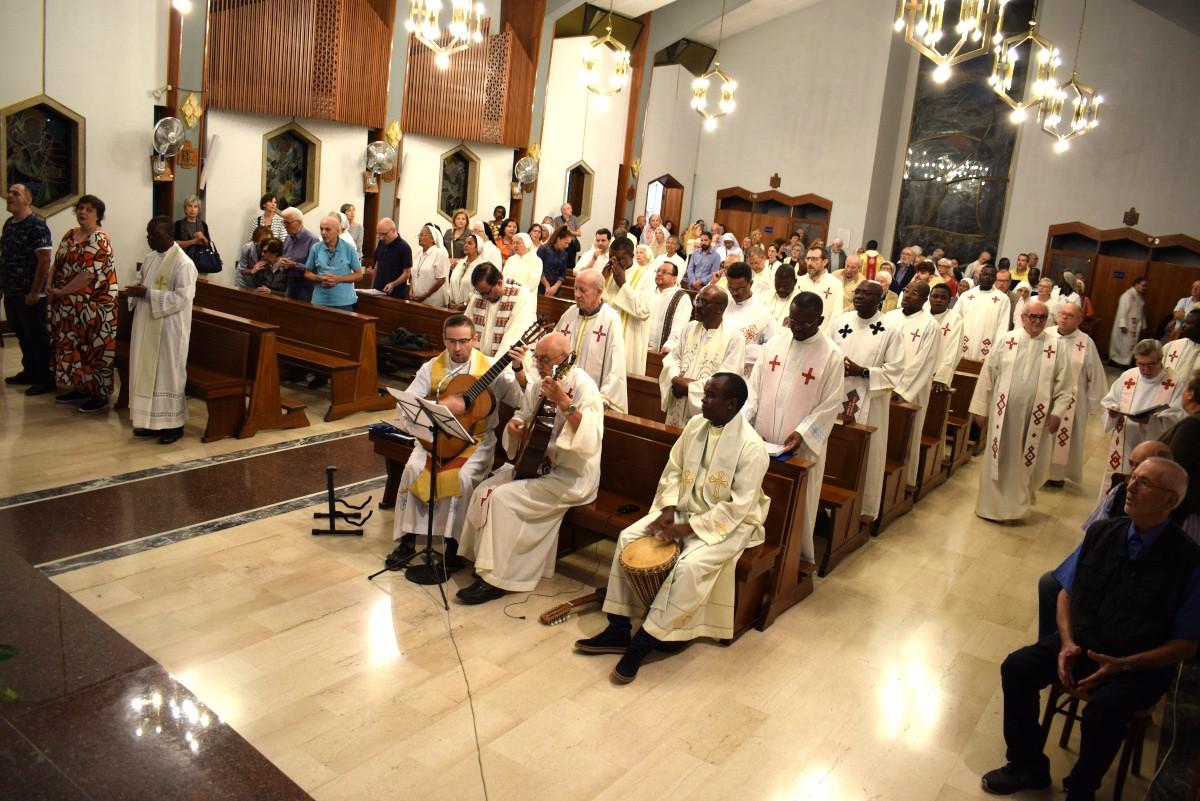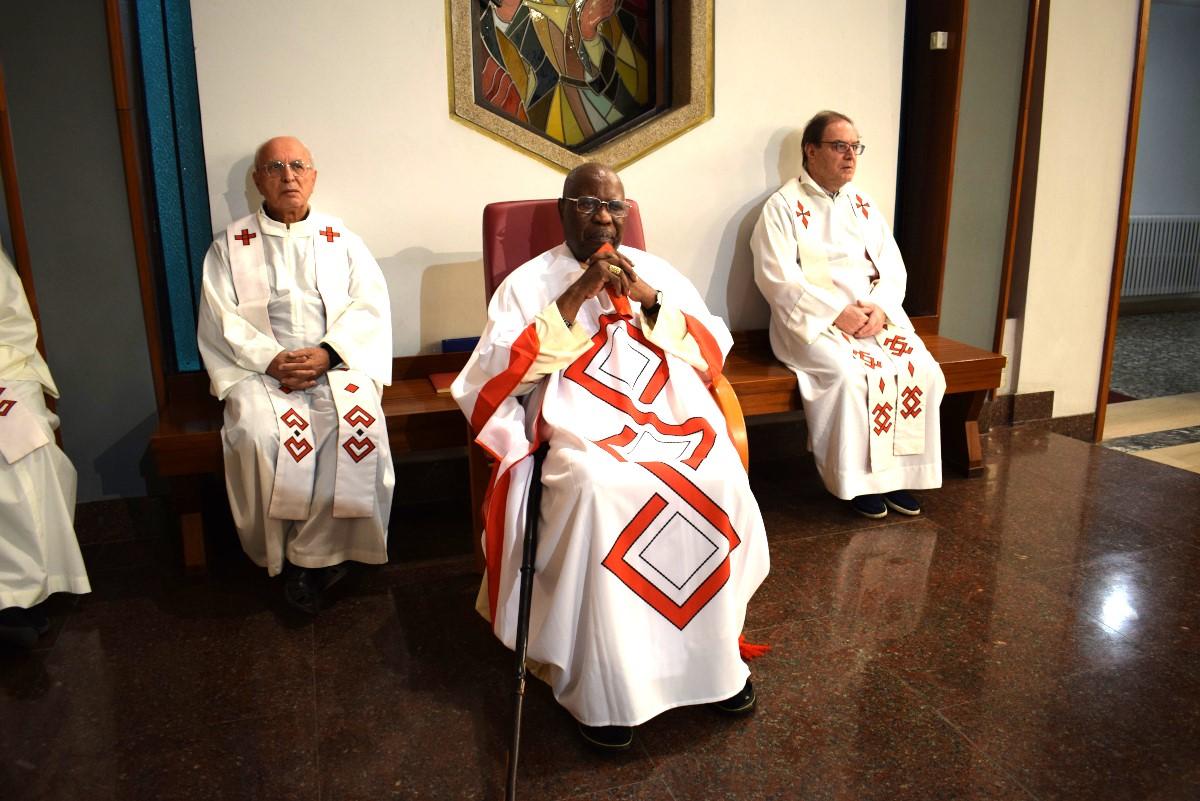Daniel Comboni
Comboni Missionaries
Institutional area
Other links
Newsletter
Wednesday, October 11, 2023
On the evening of 10th October, the communities of the General Curia celebrated the feast of St Daniel Comboni together. The Mass was presided over by Father Elias Sindjalim Essognimam, Assistant General. The celebration was attended by a good number of diocesan priests, friends, benefactors, representatives of the Comboni missionaries, and sisters belonging to the communities to which we offer our ministerial service. A very significant presence was that of Sudanese Cardinal Gabriel Zubeir Wako, Archbishop Emeritus of Khartoum (Sudan) since 2016.
Father Arnaldo Baritussio introduced the solemn celebration of the feast of Saint Daniel Comboni, 20 years after his canonisation in October 2003, emphasising the fact that Comboni, with his canonisation, has become a point of reference for the entire Catholic Church, not only for the institutes he founded. He went on to emphasise Comboni’s role as a “prophet of the mission”, animated by a “vision that had at its centre the immeasurable love for God” and that drove him to dedicate his entire life to the evangelisation of Africa.
Finally, father Arnaldo addressed a strong invitation to all those present to have ‘the eyes of a prophet’, like Comboni’s, so as to be able to ‘see beyond’ and always have a ‘broad vision of reality’: “The Comboni mission consists precisely in seeing ‘always further’, especially today, because no one must be denied a present that has a future”.
In his articulate homily, father Elias reflected on the holiness of Daniel Comboni, emphasising three aspects, with the intention of helping the Institute “to regain its own identity and spirituality”. The three aspects were inspired by three ‘anniversaries’ that the Institute celebrated this year.
Passion for God – 20 years after Comboni’s canonisation, one cannot fail to remember his deep faith and his ability to always contemplate Christ crucified. The passion Comboni had for God – the primary source of his holiness – was linked to his profound relationship with his Creator and his strong missionary spirit. His faith led him to abandon himself into God’s hands, surrendering himself totally to his will.
Passion for suffering humanity – 150 years after the homily delivered by Comboni in Khartoum (1873), and reflecting on some passages of that ‘programmatic text’, one cannot fail to be struck by the love the Founder had for the Africans and his total dedication in trying to do all he could to bring them to Christ, «who died also for them». Towards the Africans, Comboni behaved like a ‘good postmaster’, taking on the same sentiments as the ‘Great Shepherd of the sheep’, Christ. Out of love for the Africans, he undertook difficult and risky journeys, endured hardship and illness, and accepted an early death, only because he had decided to “make common cause with them”. Addressing them in the church in Khartoum, he said: “Rest assured that my soul corresponds to you an unlimited love forever and for each one of you. I return among you never again to cease being yours, and all consecrated for your greater good consecrated in eternity. Come day come night, come sun come rain, I shall always be equally ready to serve your spiritual needs: the rich and the poor, the healthy and the sick, the young and the old, the masters and the servants will always have equal access to my heart. Your good shall be mine, and your sorrows shall be mine also. I make common cause with each one of you, and the happiest day of my life will be the one on which I will be able to give my life for you” (Writings, 3157-8).
Great love for the institute and sense of belonging – On the centenary of the painful division of the Comboni Institute (decreed on 27th July 1923 and finally resolved on the Solemnity of the Sacred Heart in 1979), one cannot fail to recall the passion Comboni cultivated for unity among his missionaries. As he wrote in the Rules of 1871, he thought of his institute as “a little Cenacle of Apostles for Africa, a centre of light sending to the centre of Africa as many rays as are the Missionaries who go out from it” (Writings, 2648). Today we are no longer a ‘small cenacle’ (we are about 1,500!), but the image (and spirit) of ‘cenacle’ must remain fundamental among the Comboni missionaries. Sincere love among us cannot but remain a “centre of light”, if we are to be authentic “rays” emanating from it.
After the Eucharist, there was a fraternal agape, characterised by joy and communion.

